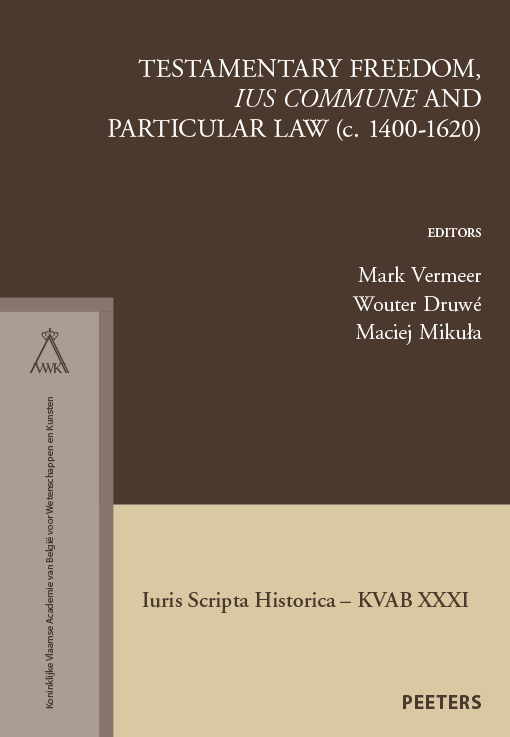As one of the remnants of Roman law, acts of last will have played an important role in European history. Last wills offer many opportunities for interdisciplinary research, as they are positioned at the crossroads of law, social history, economic history and the history of mentalities. Despite being formally the expression of a testator’s ultimate wishes, the last will was subject to restrictions and formalities from various sides, such as princely laws, family interests and stipulations from
ius commune.
This volume collects nine papers by an international group of scholars on the legal status, use and restrictions of acts of last will, with a special focus on various European regions that in the fifteenth to seventeenth centuries constituted a periphery within the
ius commune tradition. The papers are structured around three major themes: the study of testamentary practices as a lens for the study of social life; the position of
ius commune in comparison to local legal discourse and practice; and the relation between particular law and testamentary freedom.
This book is published open access. It can be downloaded
here.


 0
EN
0
EN




